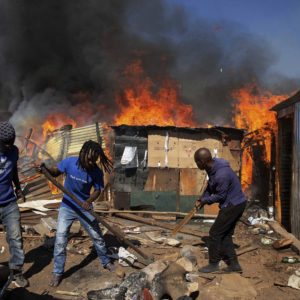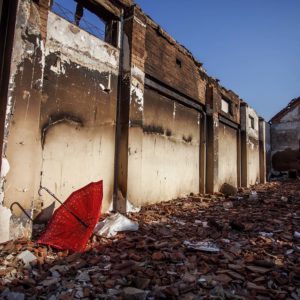Floods bring catastrophic personal losses and costs
In addition to damaging public infrastructure, the floods in KwaZulu-Natal have devastated the lives of shack dwellers and township residents, many of whom now have to start over while grieving.
Author:
13 April 2022

It was around 4pm when Sabelo Ndlangisa, 21, and his partner Yolanda Jojozi, 20, heard the walls of his shack begin creaking, as heavy downpours flooded the Marikana shack settlement in Cato Crest, KwaZulu-Natal.
Ndlangisa says Jojozi had been visiting from Illovo on the South Coast with their three-month-old daughter, Amili Jojozi. When the rain intensified, he advised them to stay over and leave the next day. Ndlangisa’s shack is built next to his family’s shack, which houses his parents and three siblings.
Alarmed by a loud noise, Ndlangisa left his partner in bed where she was breastfeeding their daughter. He walked outside to see what was going on and, moments later, the mostly corrugated iron structure had come crashing down.
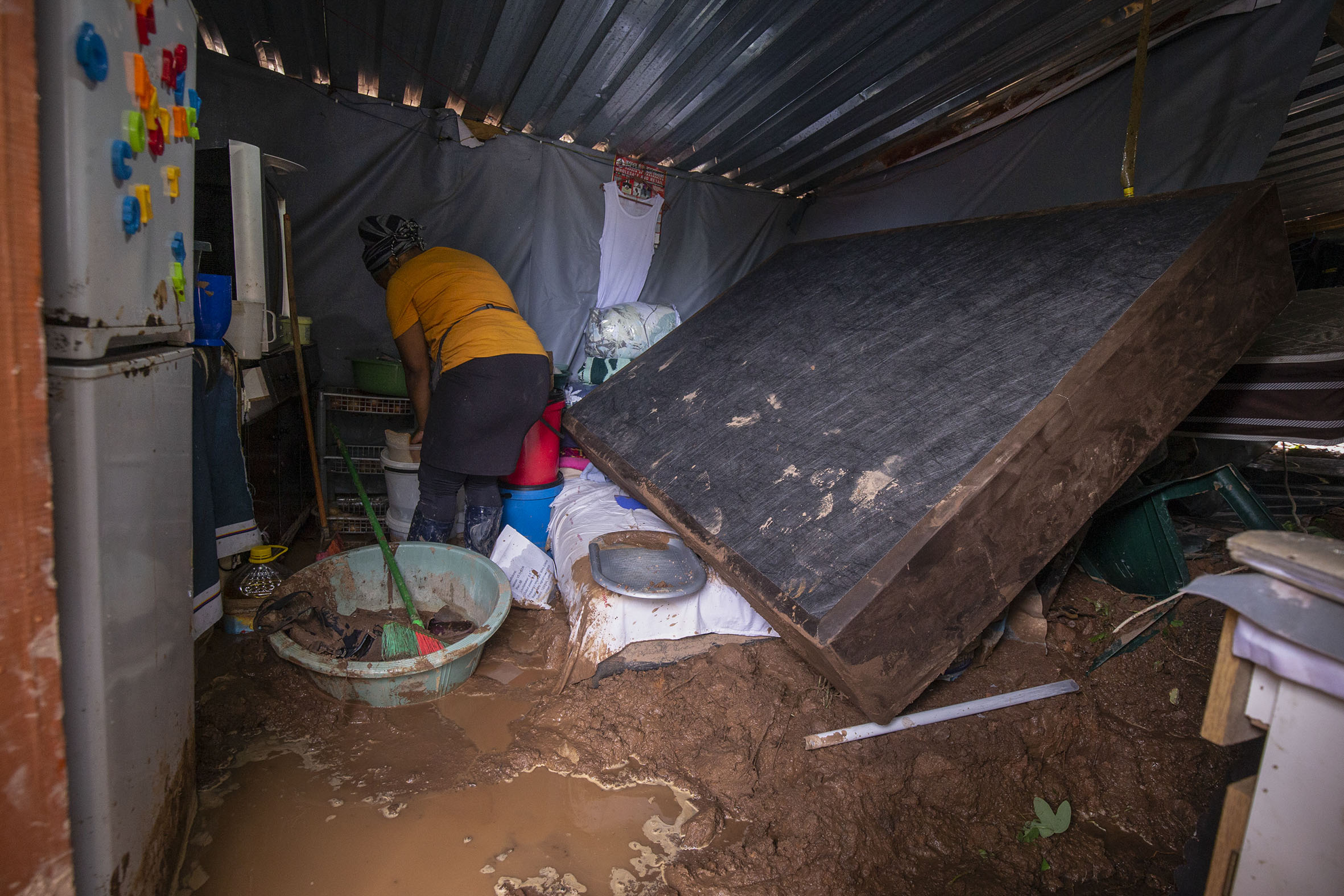
“I didn’t suspect anything when I went to check the roof of the house. Immediately after leaving, I just saw the wall behind the house falling down. I rushed back to the house but the mud had already covered half of the house. I could still hear my girlfriend shouting for help inside. I struggled to enter the house, I then ran into the main house to get scissors to cut the shack on the side because the door was no longer working.
“There was nobody home, but some neighbours who heard the noise began to help. I quickly grabbed my daughter and handed her to one of the neighbours and then proceeded to rescue her mother,” he says.
Life turned upside down
Ndlangisa’s neighbours rushed his daughter to King Dinuzulu hospital. His parents, who had just returned home from work, arranged transport to take Jojozi there as well. Amili didn’t survive, she was declared dead at the hospital. She had no visible signs of injury, but Ndlangisa says she may have suffocated in the incident.
“We called the ambulance but it never arrived. In panic, I was running around the street looking for help until my father’s friend offered to take me to the hospital. I was already anxious and worried about my daughter. Upon admission, my partner was hospitalised and taken to a different ward. I was unharmed. Shortly after, the doctors called me into a private room and told me that my daughter didn’t make it,” says Ndlangisa.
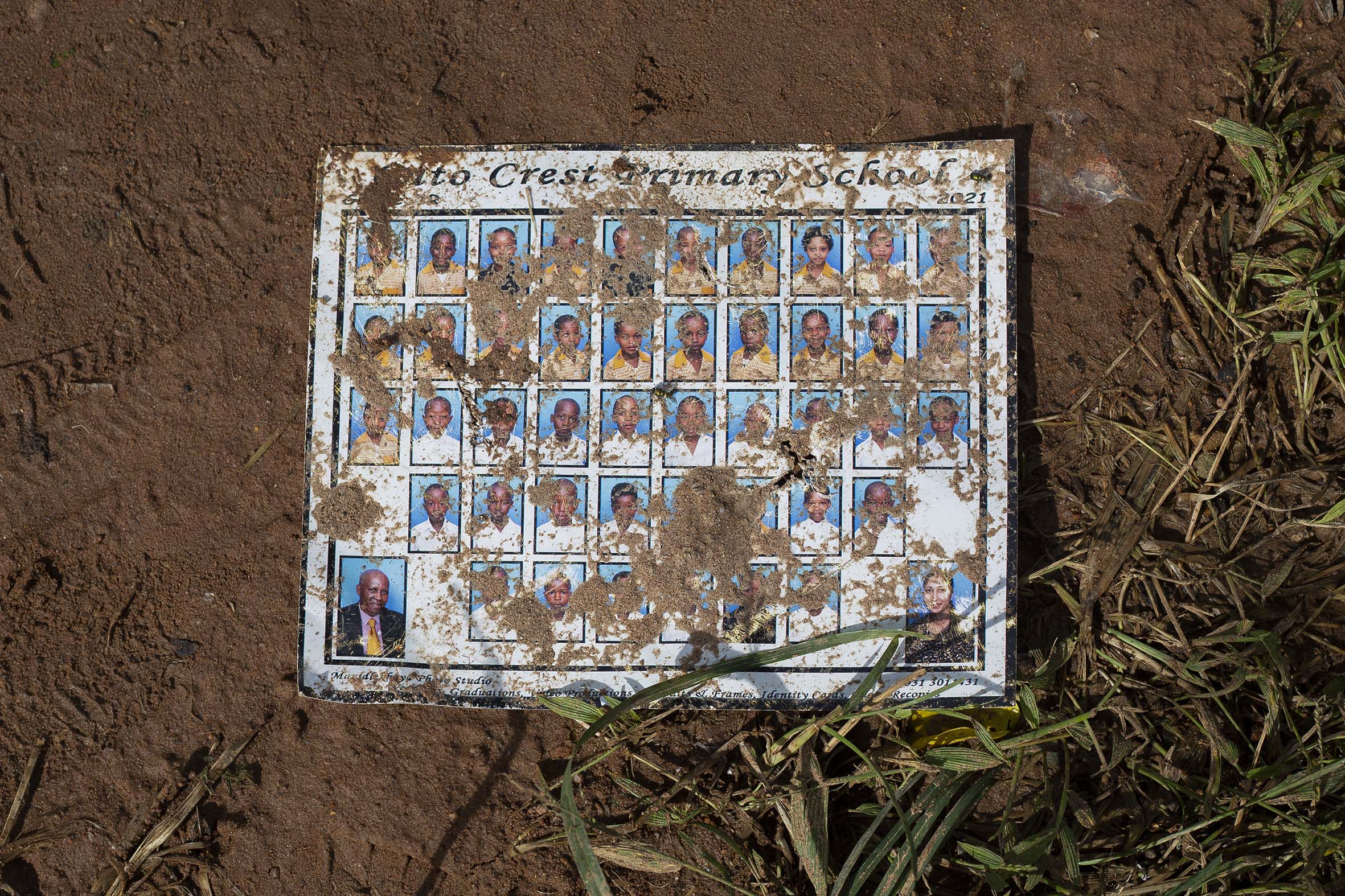
Still stunned by what had happened, his thoughts turned to the rubble that had trapped his family, he says. It claimed his daughter, who had turned three months old that day. But while devastated at the loss of his child, he says things could have been worse.
“My life has been turned upside down. Whenever I am alone, the thoughts come flooding. Maybe I could have done better in saving them, but at least one person did survive. What would I have said if both of them had died?”
Ndlangisa’s home and all his belongings remain buried in the mud. He says it will take time for him to gather the courage to rebuild his room again.
No power a blessing
Residents say there has been no electricity for the past two days amid the heavy rainfall in the Marikana settlement. While it has made it difficult to cook, charge phones and keep warm, they say the cut is a “blessing in disguise”.
“During wet weather, the electricity connections can cause severe electrical shock. At least we dodged that bullet,” says settlement leader Thandi Joni, 43.
Related article:
Joni says residents “slept standing up” without shelter. She tallied the damage and tried to help households that did not have any food. “While we have experienced natural disasters in this settlement, never have we seen it in this way. We have nothing left from the little we had collected. Our belongings are hard-earned. Many people here are not formally employed or not working at all, and so it really hits hard when all your belongings are destroyed.”
Accompanied by three other women leaders in the settlement, Joni is trying to make sense of the aftermath. The sight of residents hurrying around, slipping and getting stuck in the mud and sewage, exposes that the settlement exists in a state of never-changing affliction.
‘My last pair of shoes’
Not far from Marikana, in the eNkanini settlement, Busisiwe Diko, 27, has been at the forefront of assisting and assessing the devastation. Diko, who has spent about eight years in the settlement with her mother, has a 13-month-old daughter. Massive rocks from a wall that collapsed just above her house destroyed her room. She managed to escape with her daughter to her mother’s room, where she and three of her siblings will now be sleeping, while others seek refuge at her aunt’s home in a nearby township.
Diko says she feels “helpless and traumatised” by the wreckage in and around her settlement. “Not having a place to sleep is traumatising. I am now completely depressed and hopeless. It would have been better if I was the only one left without shelter, but for my child to also suffer like this creates a different kind of distress.
“I haven’t eaten or slept in two days. All of that has piled up, you can imagine what that can do to a mind. The realities of shack dwellers lay out in the open, particularly during disasters such as floods and fires, then people really get to see how hard it is to live in emjondolo. But this is our everyday life, only it is intensified because the roofs we call home are gone, our dignity is washed away and our shame is exposed. The government will still look away, as it has for the past 28 years,” says Diko.
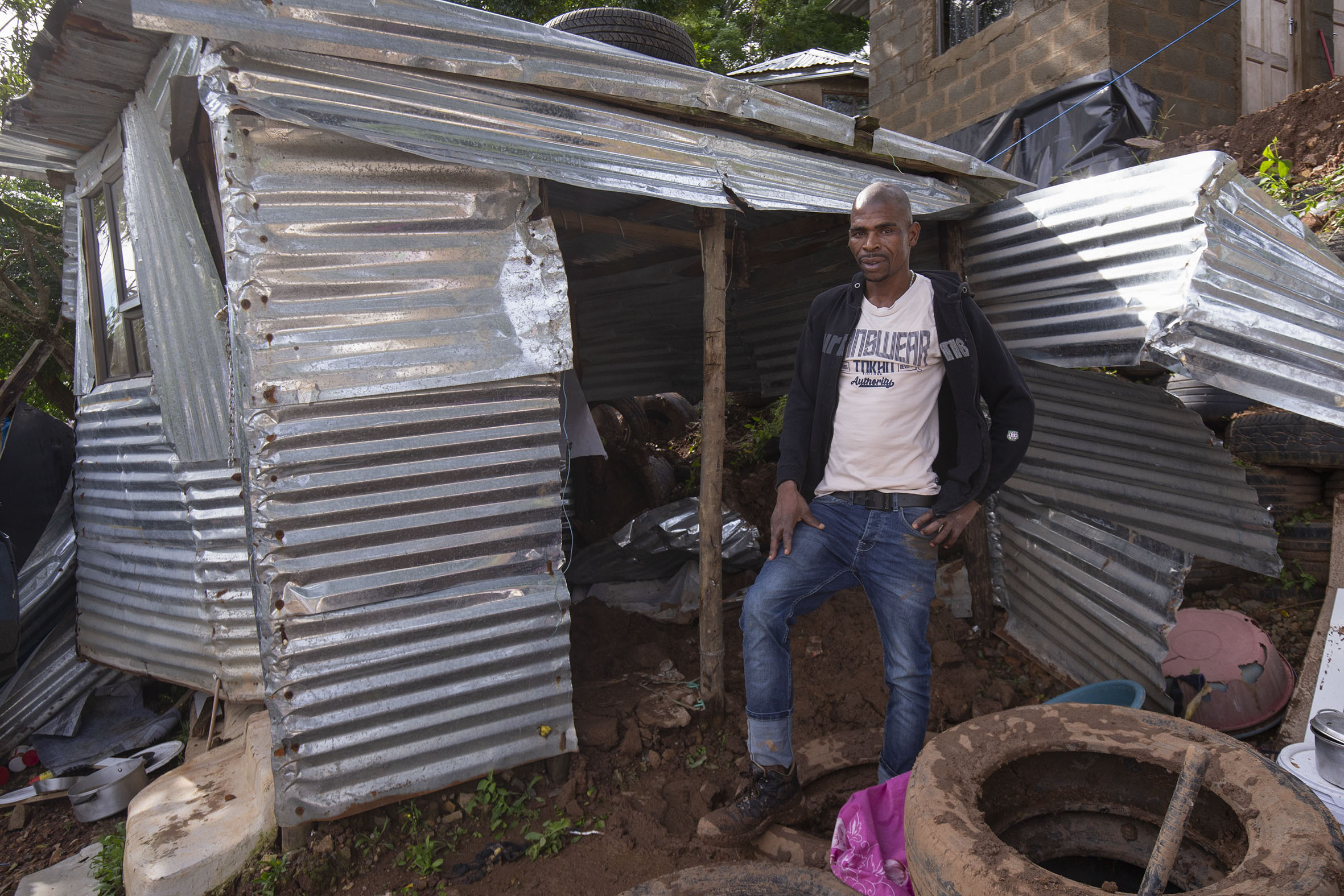
Diko’s neighbour Bheki Zulu, 37, says he doesn’t know how to start rebuilding and fears losing his job as he is currently homeless. Zulu says he returned from work to find his house washed away.
“I have four children who depend on me and after getting a job nearby as a saw operator, I was finally able to provide for them. Staying here meant I could save on transport and maintain my children’s needs. Everything I had here was from years of hard work, now it’s all gone. This will take me about six months to recover. In the meantime, I have to now abandon this place and find a place to stay back home in Clermont, which will set me back financially because transport is costly,” says Zulu.
Next to Zulu’s wrecked house stands Alexia Dlamini, 34. She recognises some of her belongings, submerged in the mud. She tries to walk towards what used to be her room, but her feet sink and she loses her last pair of shoes to the mud. Dlamini says her house slid down the hill while she was helping a neighbour who had been stuck in her house.
Related article:
“My tears have dried up. I don’t even know where to begin. I have to go to work tomorrow and now I just lost my last pair of shoes. My clothes and food are all down there, in the mud. Kubi, it is hard,” she says.
Residents from the eKukhanyeni land occupation near Mariannhill, west of Durban, say they are battling to come to terms with fatalities following about nine homes being washed away. Community leader Themba Ntinga says three people, including a child, are confirmed dead.
“There are more people missing. We only managed to find the three bodies without help from the police or rescue teams. We suspect there are more bodies that will be uncovered because there are some people we cannot locate. We are particularly concerned about the elderly, who often stay on their own,” says Ntinga.
Flood effects
KwaZulu-Natal member of the executive council for health Nomagugu Simelane confirmed that the death toll had risen to 253. Many are still missing. About 4 000 shacks have been washed away and 2 000 RDP homes destroyed. Many routes in and around Durban are closed to traffic, with the N2 and M4 highways largely affected. Sinkholes have cut off rural and urban road access, and residential properties have been destroyed.
Rescue and clean-up operations have begun on the N2 to Durban, which was completely flooded, preventing access to the city. There was extensive flooding in Isipingo and Prospecton, with reports of people trapped in houses and factories.
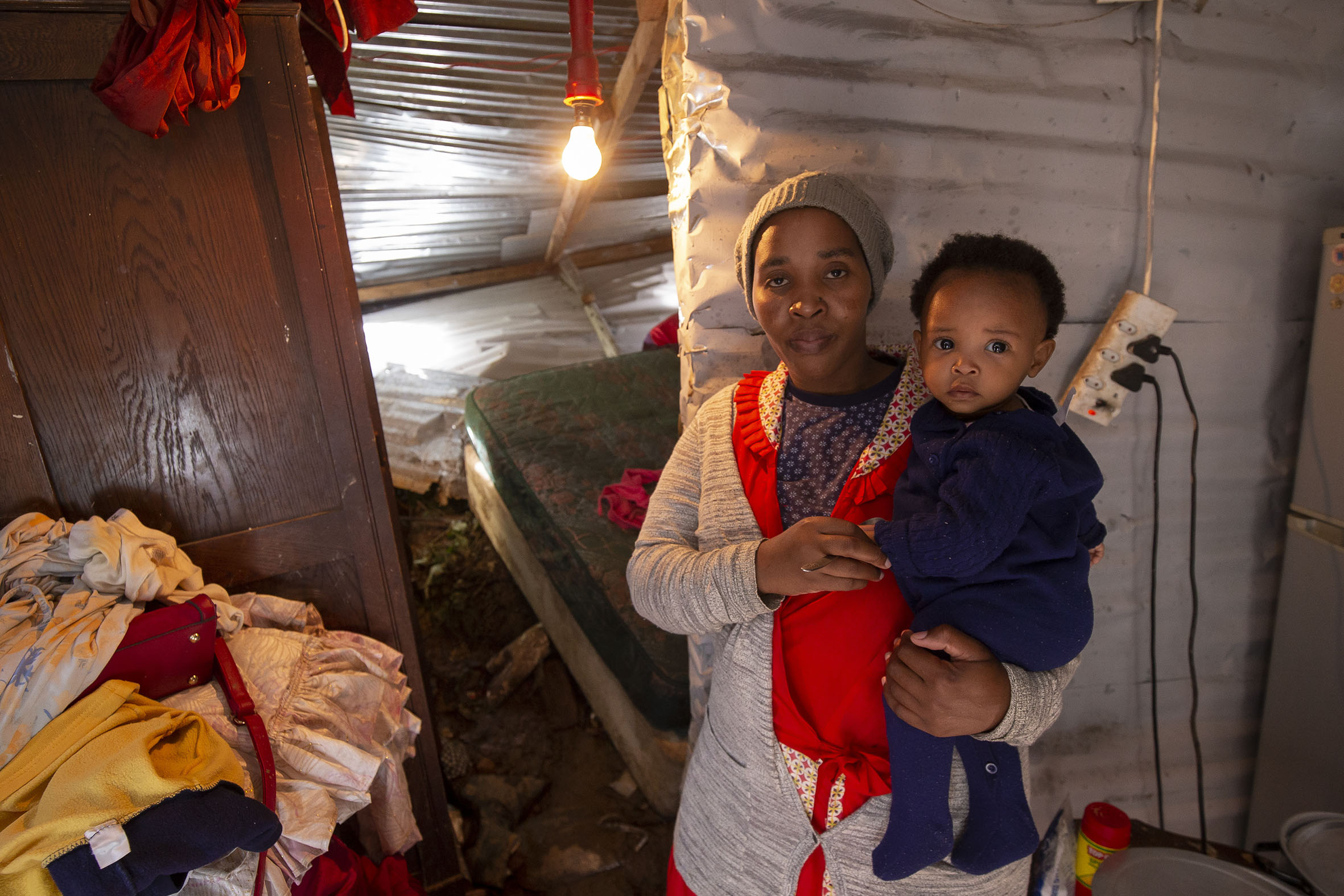
In the early hours of Tuesday 12 April, a number of shipping containers were swept away from storage facilities and carried on to the N2 in Durban. The floods also destroyed the freight channel in the Durban Harbour.
Some communities in the south of Durban are without electricity and water. The floods have also brought down telecommunications and forced Transnet to temporarily suspend shipping activities at its Durban terminals.
About 100 schools in KwaZulu-Natal have reported flooding and several are closed. Access to some rural areas around Durban is cut off as many low-line bridges and roads have been swept away.

